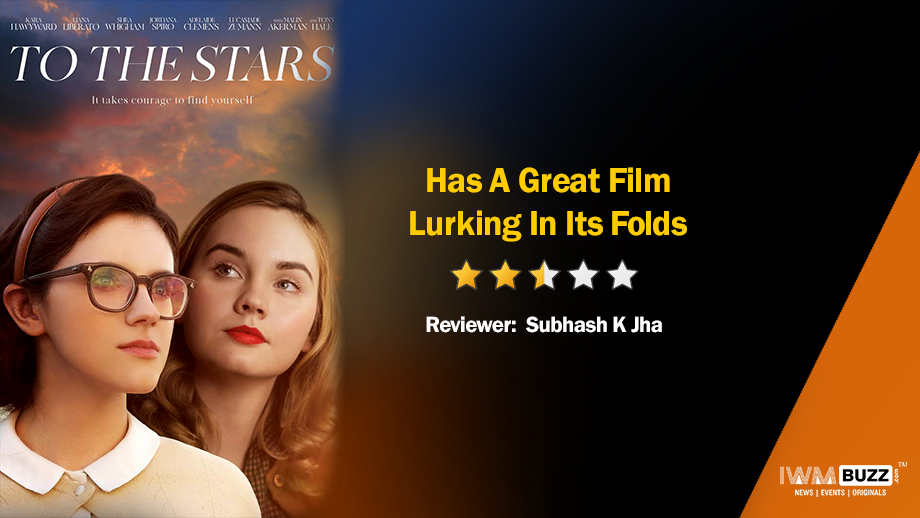Starring Kara Hayward, Liana Liberato, Tony Hale, Lucas Jade Zumann Adelaide Clemens Jordana Spiro
Directed by Martha Stephens
Rating: ** ½
Lurking somewhere deep down in this saga of awakening and acceptance in the conservative Oklahoma of the 1960s, is a great film. A To Kill A Mockingbird set in an area below the waist and sometimes above the ribcage. But never quite making the target of the aim.
To The Stars is well-charted physically. The sets clothes makeup attitude and articulations appear apt.
There is also a gurgling clarity in the way the characters feel for one another. In his dinner table glance we can see the repressed young heroine Iris’ father is a bully with a temper problem that he hides under that sinister smile (well played, Tony Hale), or that the town hairdresser Hazel (Adelaide Clemens) with those sad unfulfilled eyes have the hots for the sparkling Margaret Richmond.
Or that young shy boy (Lucas Jade Jumann) who rebuffs Iris’ mother’s advances and befriends the timid Irish instead is a redemptive footnote in a film that takes on more than it can deal with.
To The Stars is mainly about the passion that grows between Iris and Margaret, played with a moving fidelity by Kiara Hayward and Liana Liberato. They get into their characters effortlessly without letting their innate personality be submerged in period details. This is a film that indicates its time zone without planting flagpoles of identification.
It all comes apart for the characters, and I am afraid the film, at the end when the local men turn into raging bullying Klu Klux clannish beasts out to punish the town’s closeted lesbian after she is caught getting intimate.
Whispers and rumors in a cloistered society abound. But nothing here that jumps at us with a sense of uniqueness. The frames are over-polished almost to the point of seeming sanitized, probably in pursuit of a non-adult audience. And the best character, that of Iris’s alcoholic wanton mother Francie allowing her own cravings to overcome her domestic duties played beautifully by Jordano Spiro, remains under-developed. Francie’s unfinished desires tell us more about the repression in the Conservative town than the rest of the film which wants to say a lot more than it actually does.


